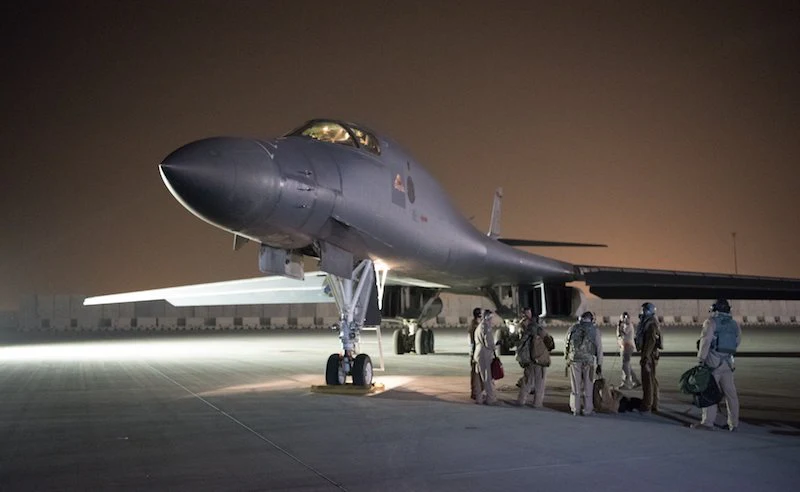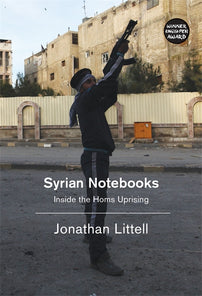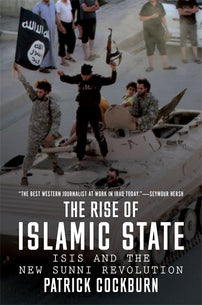The Performance of Legitimacy: On the Syrian Missile Strikes
Missile strikes against Syria have set the stage for future military intervention around the world.

On April 14, Washington, London, and Paris launched coordinated missile strikes on Syria, from destroyers and aircraft carriers stationed in the Mediterranean Sea, as well as a U.S. airbase in Jordan. President Trump claimed that the attacks came in response to an alleged sarin and chlorine gas attack by the Assad regime on April 7, in Douma, Eastern Ghouta. Activists on the ground claim that seventy-five people have been killed, and more have been hospitalised with symptoms that are consistent with chemical weapons exposure.
Trump’s aggressive moves and extreme rhetoric have been widely misinterpreted. The strikes were never an indication that the U.S. and its allies would push any further against Damascus, nor were they a step towards war with Iran or Russia. Rather, the strikes were a performance meant to restore Western moral legitimacy by way of a spectacular response to the use of chemical weapons. Indeed, the group’s desire to avoid further confrontation was clear from the beginning, when Trump gave advanced notice of the strikes, thereby ensuring that the targeted sites would be emptied of civilians and military personnel. The alliance was also still communicating with Moscow, and made sure not to cross its red lines on the safety of its troops and certain geographic areas. It seems obvious that the alliance wanted to slap Assad on the wrist to save its own reputation, without significantly antagonising other actors or changing the larger trajectory of the conflict. As a result, it was able to claim the legitimacy to enforce worldwide standards on “good” and “bad” behaviour, and by repairing its own reputation in the eyes of a cynical public, managed to set the stage for future military intervention.
The missile strikes themselves have caused intense panic, as well as confusion about Western military strategy in Syria. Yet they do not indicate a shift in Washington’s approach, which despite pressure from European allies that are facing refugee influxes, has largely abandoned the prospect of unseating Bashar al-Assad. The United States initially sought to support the Syrian opposition, as early as March 2011, with a mixture of training, weapons shipments, and possibly in the future, logistical assistance on the ground (from mercenaries and Special Forces), as well as air strikes against the Syrian military. This approach of indirectly backing local forces, rather than simply invading the country, had become popular in the fallout of the Iraq War. It allowed for the projection of Western interests without the direct use of its military machine, which lacked morale, credibility in the eyes of Western populations, and had been massively discredited on the world stage.
For several years, it appeared that this approach would be applied to Syria, as it had been during the 2011 NATO-led intervention in Libya. Yet the disastrous consequences of that war, in addition to Barack Obama’s misgivings about getting more involved, made that seem unlikely as early as 2012. This was to the extreme displeasure of liberals in both North America and Europe, in addition to local allies like Israel and the Gulf monarchies, which wanted a more decisive show of force. Their criticisms peaked in August 2013, when Obama decided not to enforce his “red line” against chemical weapons use, following an attack in the Damascus suburbs that killed nearly 1,500 people. While Obama was slammed for being “weak,” he was probably right not to intervene further, given Assad’s continued position of strength, and the potential for another “quagmire.”
Eventually, when Islamic State emerged in June 2014, American strategy in Syria evolved to focus on the group’s activities, with special assistance given to the Syrian Kurdish PYD. Over the next few years, the Kurds (receiving embarrassingly uncritical praise from the Western left) and Islamic State became the centre of the story. While covert assistance to the Syrian rebels continued, Assad was basically left forgotten, with an unstated acknowledgement from Washington that going after his government risked generating the sort of instability that would work to the benefit of groups like Islamic State. Instead, American troops would operate in areas controlled by the Syrian Democratic Forces, while avoiding troops linked to the Syrian military, and later, those of Russia, Iran, and Hezbollah. Trump may now bellow at Obama for failing to confront “Animal Assad,” but even his own government understands Western limitations in the country, which is why it has been speaking much louder than it acts.
It is important to recall last year’s attack on Shayrat airbase, near Homs, when Trump condemned Assad for killing “innocent babies” and directed U.S. strikes against Syrian military targets for the first time. Trump clearly did not intend to expand the war. Rather, he sensed a media opportunity following the gassing of Khan Sheikhoun, and in his response, branded a light naval bombardment as a righteous crusade. As with the recent strikes, his floundering government was strengthened, and within a week, Trump quieted congressional opposition, lifted his dismal approval ratings, and received enthusiastic praise from sceptical allies like Germany. The U.S. also placed diplomatic pressure on China during major talks with Xi Jinping, and Russia, with potential consequences in other regions like Eastern Europe. Importantly, the strikes achieved very little, and seemed confusing at the time, but mainly because observers forgot that the point wasn’t to change the situation on the ground. It was to make the United States and its allies look good.
Given the shortcomings that have framed Western policy towards Syria for the entire war, the punitive strikes that followed Khan Sheikhoun appeared to be designed to help make armed conflict seem appealing again. It’s worth remembering that the attack happened a few days after Press Secretary Sean Spicer said that the U.S. needed to “accept the political reality” of Assad staying in power. The public’s confused reaction was similar to that which followed the recent strikes, which took place less than two weeks after Trump said that he wants to “get out of Syria.” U.S. Senator Chris Coons has claimed that Trump and his allies “have failed to deliver a coherent plan on the path forward.” U.S. Senator Mazie Hirono has criticised “the president’s incoherence.” Max Boot has written a piece for the Washington Post that summarises the American media establishment’s broader reaction with its title, “What on earth is Trump saying?” Yet this confusion stems from a misunderstanding of the real goals of the U.S. and its allies, which are to revive certain approaches to conflict.
The three countries’ objectives are clear from the careful wording of their leaders’ statements, which stick to the internationally agreed prohibition on the use of chemical weapons, and implicitly emphasise their role as its sober-minded enforcers. Defence Secretary James Mattis explained that the missile attack on Shayrat airbase was “singular, against the chemical weapons use,” and meant to reinforce international prohibitions against chemical attacks. He repeated this justification following the more recent strikes, adding his hope that “this time the Assad regime got the message.” British Prime Minister Theresa May also made clear that the strikes targeted Assad’s use of chemical weapons, saying that “we cannot allow the use of chemical weapons to become normalised, within Syria, on the streets of the UK, or anywhere else in our world.” French President Emmanuel Macron noted “we cannot tolerate the trivialisation of the use of chemical weapons, which is an immediate danger for the Syrian people and for our collective security. This is the aim of the initiatives constantly put forward by France to the United Nations Security Council.” Clearly, these comments are designed to give the impression that the parties involved have a superior moral outlook, which by necessity, translates into their lawful policing of an otherwise chaotic region. The narrative is simple and clean, focusing on Assad’s “bad behaviour” and the fact that it needs to be disciplined in the spirit of global institutions like the United Nations.
Liberals in the United States, France, and the United Kingdom may oppose Trump’s overall agenda, but they largely fall in line behind his efforts to rehabilitate a simplistic view of the world in which Western military power is a force for good. As operations, the strikes in Syria are similar to the Gulf War, and the Falklands War, in that their purpose is less to achieve any strategic gains, and more to revive the notion that certain countries are allowed to use force to enforce the moral standards of the liberal international order.
During the Gulf War, President George H.W. Bush proclaimed that the U.S. had “kicked the Vietnam syndrome,” and President Reagan had taken steps towards that end with interventions in Grenada and Panama. Trump and his European allies are smart enough to see that their respective populations are currently experiencing a similar “syndrome,” and are cynical about foreign military interventions after over a decade of disastrous warfare in the Middle East. The missile strikes in Syria are meant to be a response to that exhaustion, and if they are successful, they will reshape public opinion, boost the legitimacy of military action when there are humanitarian justifications, and lead to a situation where options like a full-scale invasion and occupation of countries like Syria will once again be on the table.
While Assad will likely survive the civil war, and his international opposition has failed in replacing him, the U.S. and its allies may recover their losses by emerging from the conflict with a renewed sense of missionary zeal. That shift would give them greater military flexibility, in future conflicts, when it comes to using force to protect and expand liberal values around the world. That does not necessarily mean that they will launch interventions on a similar scale to that of the Iraq War, especially as conventional warfare continues to go out of style, but it does give Western powers more options for shaping global events than they had at the beginning of the Syrian Uprising in 2011.
Bilal Zenab Ahmed is an MPhil/PhD student at SOAS, University of London, studying how Islamists politicise the human body in Pakistan. They are formerly the Associate Editor of Souciant.com, and currently based in London, working as a freelance writer. You can find them on Twitter at @pakistanarchy and on Facebook at http://www.facebook.com/pakistanarchy
[book-strip index="1" style="display"]




